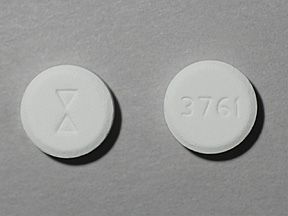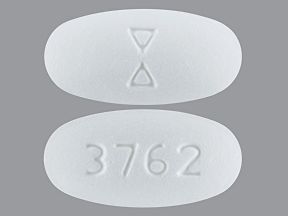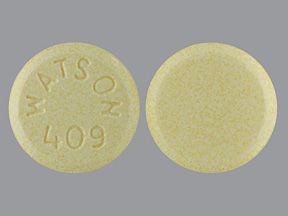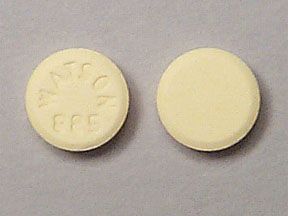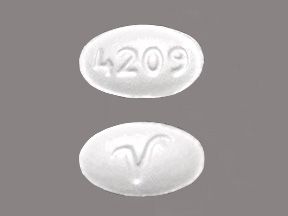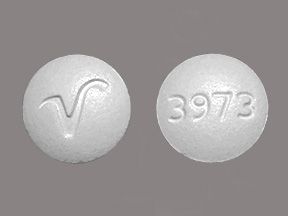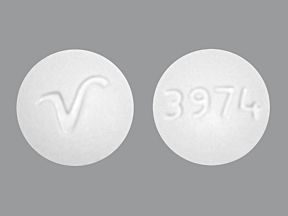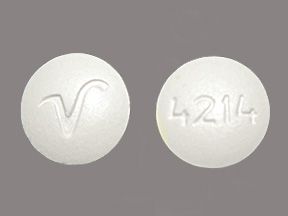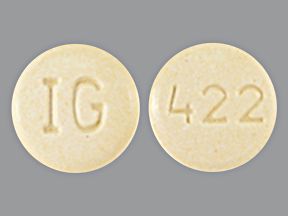Lisinopril is a generic prescription drug that’s used for managing high blood pressure and certain other heart problems. Lisinopril comes as a tablet that you swallow.
Lisinopril is used to help:
- manage high blood pressure in adults and some children
- treat heart failure
- prevent the risk of severe complications after a heart attack
To learn more about lisinopril’s uses, see the “What is lisinopril used for?” section.
Lisinopril brand-name versions
Lisinopril is a generic drug, which means it’s an exact copy of the active drug in a brand-name medication. The brand-name medication that lisinopril is based on is called Zestril.
Generic drugs are thought to be as safe and effective as the brand-name drug they’re based on. In general, generics usually cost less than brand-name drugs do.
If you’d like to know more about using Zestril instead of lisinopril, talk with your doctor. You can also read this article to learn more about the differences between generic and brand-name drugs.
Lisinopril has a boxed warning. A boxed warning is the most serious warning from the Food and Drug Administration (FDA). For details, see the “What should I avoid while taking lisinopril?” section.
Lisinopril is FDA approved for the following uses:
- heart failure
- preventing the risk of death after a heart attack
- high blood pressure in adults and children ages 6 years and older
Lisinopril helps manage these conditions by relaxing your blood vessels. In turn, this makes it easier for your heart to pump blood throughout your body.
Like most drugs, lisinopril may cause mild to serious side effects. The lists below describe some of the more common side effects that lisinopril may cause. These lists don’t include all possible side effects. For a more comprehensive look at the effects lisinopril may cause, see this article about lisinopril’s side effects.
More common side effects
The most common side effects that can occur with lisinopril include:
- headache
- dizziness
- dry, persistent cough
- low blood pressure
- chest pain
If these effects are mild, they may go away within a few days or a couple of weeks. If they’re more severe or don’t go away, talk with your doctor or pharmacist.
Serious side effects
Call your doctor right away if you have serious side effects. Call 911 if your symptoms feel life threatening or if you think you’re having a medical emergency. Serious side effects and their symptoms can include the following:
- Kidney problems. Symptoms include:
- tiredness
- swelling, especially of your hands, feet, or ankles
- shortness of breath
- weight gain
- Liver failure. Symptoms include:
- yellowing of your skin and the whites of your eyes
- elevated liver enzymes
- stomach pain
- nausea and vomiting
- High potassium levels. This drug can cause dangerously high potassium. This can lead to arrhythmia (heart rate or rhythm problems). Your risk may be higher if you have kidney disease or diabetes, or if you’re taking other drugs that increase potassium levels.
Allergic reaction
For some people, lisinopril can cause an allergic reaction. But it’s not clear whether this side effect occurred in the drug’s studies.
In general, symptoms of allergic reaction can be mild or serious.
What might help
If you have mild symptoms of an allergic reaction, such as a mild rash, call your doctor right away. They may suggest a treatment to manage your symptoms and can determine whether you should keep taking lisinopril.
If you have symptoms of a severe allergic reaction, such as swelling or trouble breathing, call 911 or your local emergency number right away. These symptoms could be life threatening and require immediate medical care.
If your doctor confirms you’ve had a serious allergic reaction to lisinopril, they may have you switch to a different treatment.
Your doctor will recommend the dosage of lisinopril that’s right for you. Below are commonly used dosages, but always take the dosage your doctor prescribes.
Your dose, form, and how often you take the drug will depend on:
- your age
- the condition being treated
- how severe your condition is
- other medical conditions you have
- how you react to the first dose
Forms and strengths
Lisinopril is available as an oral tablet in the following strengths:
- 2.5 milligrams (mg)
- 5 mg
- 10 mg
- 20 mg
- 30 mg
- 40 mg
Recommended dosages
Dosage for high blood pressure
Adult dosage
- Starting dosage: 10 mg taken by mouth once per day
- Usual dosage: 20 to 40 mg taken once per day
- Maximum dosage: 80 mg taken once per day
Child dosage (ages 6 to 7 years)
- Starting dosage: 0.07 mg/kg of body weight, up to 5 mg, taken by mouth once per day
- Dosage adjustments: These will be based on your blood pressure response.
- Maximum dosage: 0.61 mg/kg, up to 40 mg, once per day
Dosage for heart failure
Adult dosage
- Starting dosage: 5 mg taken by mouth once per day
- Maximum dosage: 40 mg taken once per day
Dosage for heart attack
Adult dosage
- Starting dosage: 5 mg taken by mouth within the first 24 hours of when symptoms of heart attack start. Your doctor will give you another 5 mg after another 24 hours.
- Usual dosage: 10 mg given 48 hours after heart attack. Then, 10 mg taken once per day for at least 6 weeks.
Special considerations
- Heart failure: If you have low blood sodium levels, your starting dose may be 2.5 mg taken once per day.
- Improving survival after a heart attack: If you have low blood pressure, your starting dose may be 2.5 mg for the first 3 days after having a heart attack.
How to take
Your doctor will explain how you should take lisinopril. They’ll also explain how much to take and how often. Be sure to follow your doctor’s instructions.
Questions about taking lisinopril
Below are some common questions about taking lisinopril.
- Can lisinopril be chewed, crushed, or split? It’s not clear whether you can crush, chew, or split lisinopril tablets. If you have trouble swallowing pills whole, you can get tips on how to swallow pills, or ask your doctor or pharmacist for advice.
- Should I take lisinopril with food? Lisinopril can be taken with or without food.
- Is there a best time of day to take lisinopril? Lisinopril can be taken at any time of day, but it’s best to take it around the same time each day. This helps keep a steady level of the drug in your body, which helps lisinopril work effectively.
- What if I miss a dose of lisinopril? If you miss a dose of lisinopril, take it as soon as you remember. But if it’s almost time to take your next dose, skip the missed dose and take the next dose at its usual time. You should not take two doses at once to make up for a missed dose. Doing so could raise your risk of side effects.
- Will I need to use lisinopril long term? Lisinopril is typically used as a long-term treatment. If you and your doctor determine that it’s safe and effective for your condition, you’ll likely take it long term.
- How long does lisinopril take to work? Lisinopril begins to work after you take your first dose. But you likely won’t feel the drug working in your body. Your doctor will monitor your blood pressure throughout your treatment to check whether lisinopril is working to treat your condition.
Overdose
Do not take more lisinopril than your doctor prescribes, as this can lead to harmful effects.
Symptoms of lisinopril overdose
Symptoms caused by an overdose can include:
- kidney failure
- liver failure
- severely low blood pressure
In rare cases, overdose of lisinopril may cause death.
What to do in case you take too much lisinopril
Call your doctor if you think you’ve taken too much lisinopril. You can also call 800-222-1222 to reach America’s Poison Centers or use its online resource. But if you have severe symptoms, immediately call 911 or your local emergency number. Or go to the nearest emergency room.
Below is important information you should consider before taking lisinopril.
Interactions
Taking a medication with certain vaccines, foods, and other things can affect how the medication works. These effects are called interactions.
Lisinopril can interact with several other medications. It can also interact with certain supplements as well as certain foods.
Before taking lisinopril, talk with your doctor and pharmacist. Tell them about all prescription, over-the-counter, and other drugs you take. Also tell them about any herbs or vitamins and supplements you use. Sharing this information can help you avoid potential interactions.
For more information, see this lisinopril interactions article.
Drug interactions
Below is a list of medications that can interact with lisinopril. This list does not contain all drugs that may interact with lisinopril. If you have questions about drug interactions that may affect you, ask your doctor or pharmacist.
| Drug group or drug name | Examples |
|---|---|
| angiotensin II receptor blockers (ARBs) | • valsartan (Diovan) • losartan (Cozaar) • irbesartan (Avapro) |
| other angiotensin converting enzyme (ACE) inhibitors | • quinapril (Accupril) • fosinopril • benazepril (Lotensin) |
| certain diabetes medications | • insulins, such as insulin glargine (Lantus) and insulin lispro (Humalog) • sulfonylureas, such as glimepiride (Amaryl) and glipizide (Glucotrol XL) |
| diuretic drugs | • furosemide (Lasix) • hydrochlorothiazide (Microzide) • spironolactone (Aldactone) |
| nonsteroidal anti-inflammatory drugs (NSAIDs) | • ibuprofen (Advil) • naproxen (Aleve) • diclofenac (Cambia, others) |
| renin inhibitors | • aliskiren (Tekturna) |
| certain heart failure medications called neprilysin inhibitors | • sacubitril/valsartan (Entresto) |
| drugs to prevent organ transplant rejection | • temsirolimus • sirolimus • everolimus |
| lithium | — |
| gold injections | — |
Lisinopril and alcohol
Alcohol isn’t known to interact with lisinopril.
But it’s important to note that alcohol is a diuretic. It may also increase your blood pressure. Because of this, your doctor may recommend that you limit the amount of alcohol you drink.
Talk with your doctor about how much alcohol, if any, is safe to drink during treatment with lisinopril.
Pregnancy and breastfeeding
Lisinopril is not safe to use during pregnancy or while breastfeeding. In fact, lisinopril has a boxed warning for the risk of fetal toxicity when taken during pregnancy.
Boxed warning: Risk of fetal toxicity
Taking lisinopril during pregnancy may cause the following effects in a developing fetus or newborn child:
- poor development of the lungs, kidneys, or bones
- inability to urinate
- kidney failure
In some cases, taking lisinopril during pregnancy can lead to pregnancy loss.
Due to this risk, your doctor is unlikely to prescribe lisinopril if you are pregnant or planning to become pregnant. If you become pregnant, let your doctor know as soon as possible. They’ll likely advise you to stop taking lisinopril immediately.
Other warnings
Lisinopril can sometimes cause harmful effects in people who have certain conditions. This is known as a drug-condition interaction. Other factors may also affect whether lisinopril is a good treatment option for you.
Talk with your doctor about your health history before you take lisinopril. Be sure to tell them if any of the following factors apply to you:
- low blood pressure
- kidney disease
- high potassium levels
- liver failure
- previous throat, larynx, or trachea surgery
- previous allergic reaction to lisinopril or any of its ingredients
Whether you have health insurance or not, cost may be a factor when you’re considering lisinopril. What you’ll pay for lisinopril may depend on several things, such as your treatment plan and the pharmacy you use.
Here are a few things to consider regarding cost:
- Cost information and savings coupons: You can visit Optum Perks to get price estimates of what you’d pay for lisinopril when using coupons from the site. See the coupon options below. (Note: Optum Perks coupons cannot be used with any insurance copays or benefits.)
Learn more about saving on your prescriptions.
Optum Now is owned by RVO Health. By clicking on this link, we may receive a commission. Learn more.
There are other drugs available to treat your condition. Some may be better suited for you than others. Talk with your doctor about other options that may work for you.
Disclaimer: Healthline has made every effort to make certain that all information is factually correct, comprehensive, and up-to-date. However, this article should not be used as a substitute for the knowledge and expertise of a licensed healthcare professional. You should always consult your doctor or other healthcare professional before taking any medication. The drug information contained herein is subject to change and is not intended to cover all possible uses, directions, precautions, warnings, drug interactions, allergic reactions, or adverse effects. The absence of warnings or other information for a given drug does not indicate that the drug or drug combination is safe, effective, or appropriate for all patients or all specific uses.





